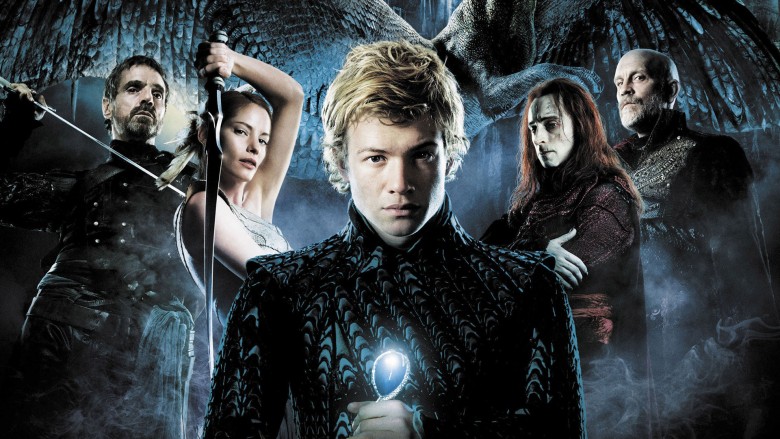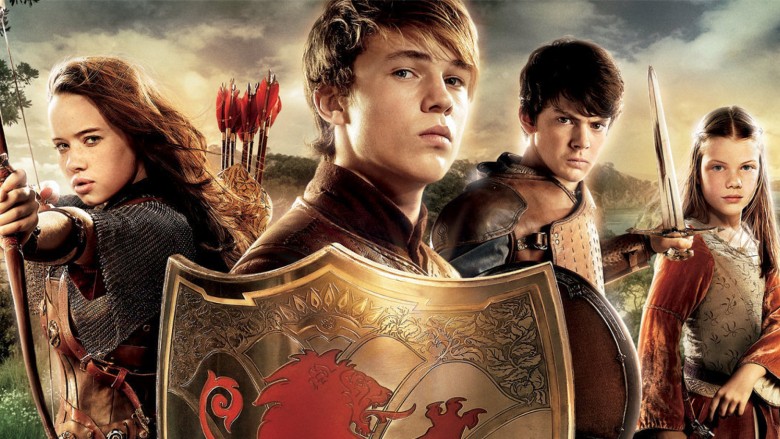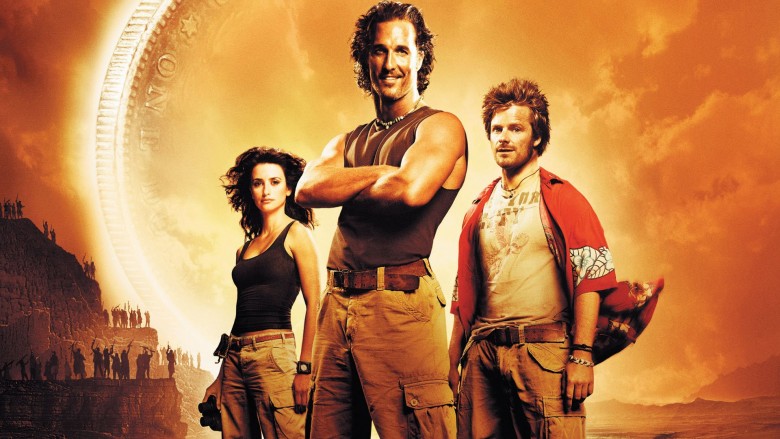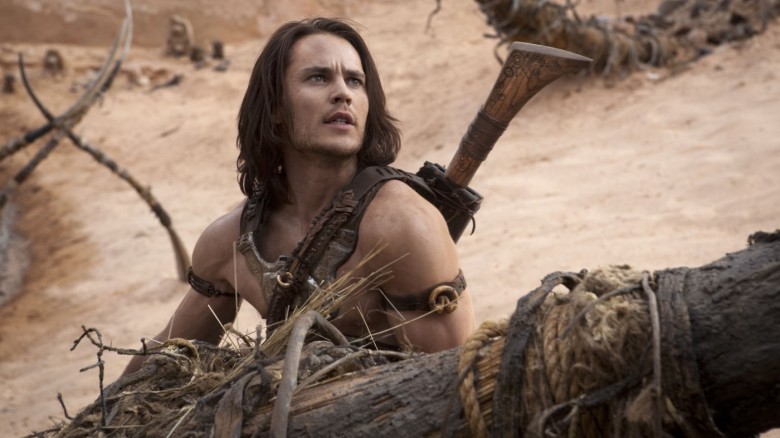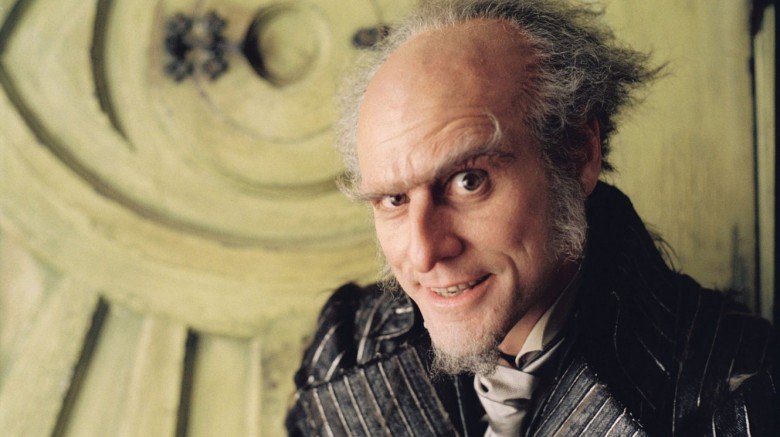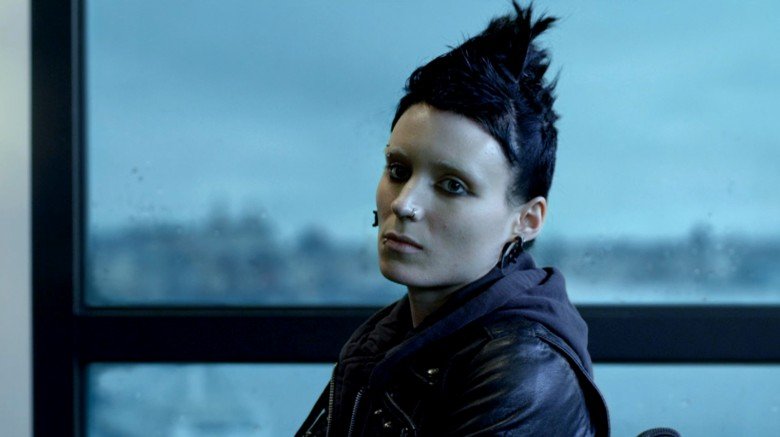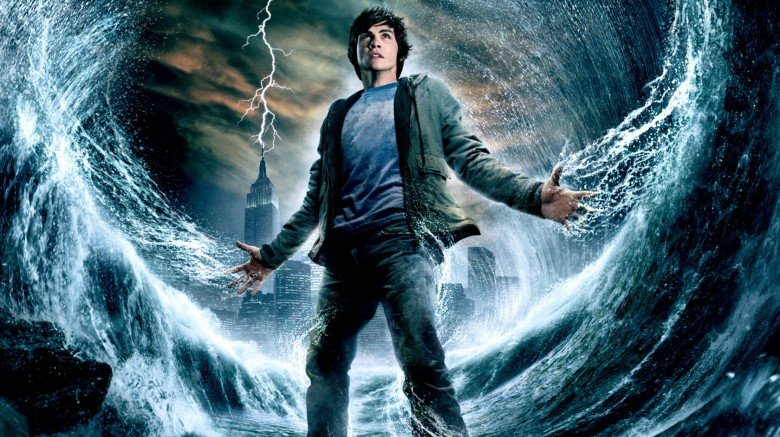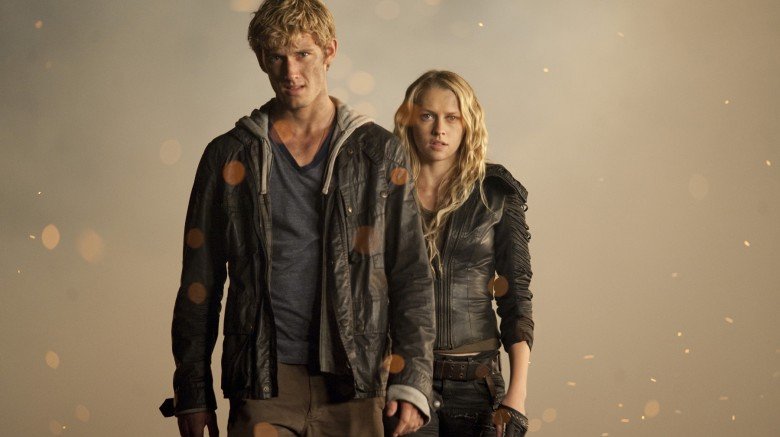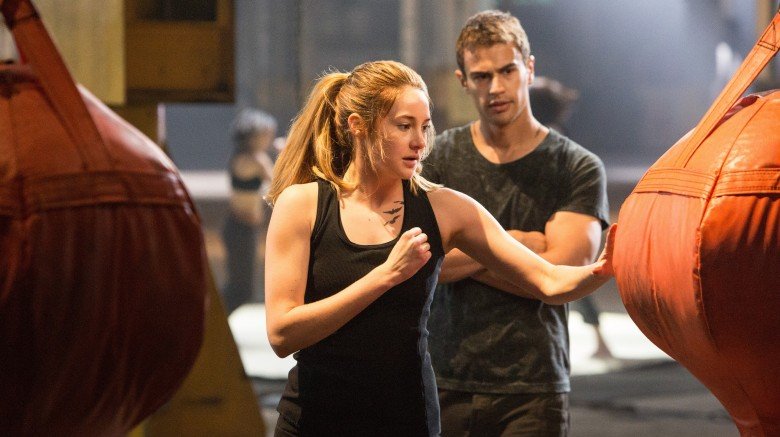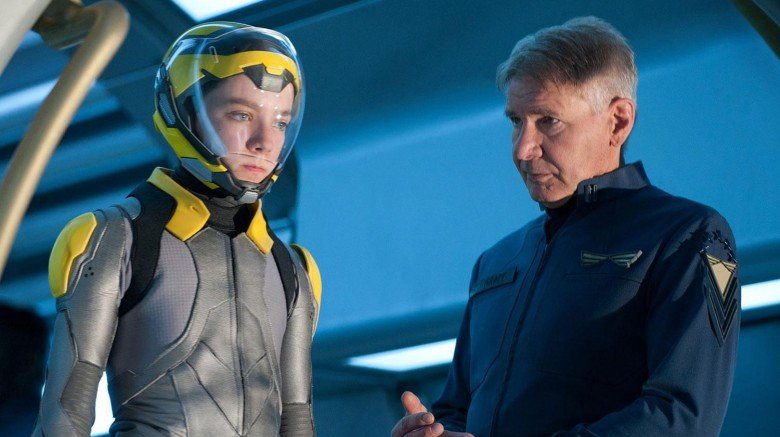Franchises Canceled Before The Final Film
Sometimes it's great to see a movie and not feel the need for a sequel, but if Hollywood studios can make a franchise out of a property, they'll do it every time. Some become huge hits, like Harry Potter, Fast & Furious, and even John Wick, but every once in awhile, things just don't work out and there's no choice but to shut down production and move on—even if the story hasn't reached its conclusion. Here are a few movie franchises that ended before their final chapter.
Eragon
Before Twilight, The Hunger Games, and most of the other young adult franchises that have hit Hollywood in recent years, there was Stefen Fangmeier's Eragon, based on the novel of the same name by Christopher Paolini. It could have been a four-film series, but it ended up serving as a perfect case of a movie doing fairly well at the box office while being ripped apart by critics and audiences—and killing the sequels before they started.
Paolini has written four novels in his Inheritance Cycle series, which means there were three possible sequels for Eragon, and Fangmeier wanted to film them back-to-back. "I think one would be best off to write the third film first, and then, being happy with that, going back to the second one and doing all the set-up work that will pay off in the third. Then probably filming two and three together as they did with Pirates of the Caribbean; as one production," he told Movieweb. Unfortunately, things didn't work out in his favor.
In fact, Eragon's failure halted Fangmeier's directing career just as it was getting off the ground. An effects wizard whose previous credits included Jurassic Park, he returned to the field after the franchise stalled, and has since worked on Wanted, Sin City, and Game of Thrones. Should he return to filmmaking, there are fans who'd still love to see the complete Eragon saga unfold on the big screen.
The Chronicles of Narnia
C.S. Lewis' classic The Chronicles of Narnia series ranks among the best-loved children's books of all time. Although there are seven novels in the series, all written in the early '50s, Hollywood has only adapted three—the first of which, The Chronicles of Narnia: The Lion, the Witch, and the Wardrobe, achieved the most success, pulling in $745 million worldwide against a blockbuster production budget of $180 million. That's more than franchise-worthy, which is why Walden Media and Disney went full steam ahead with a sequel.
Despite bloating the budget to over $200 million, The Chronicles of Narnia: Prince Caspian grossed only $419.7 million, a significant drop compared to the first installment. The third movie, The Voyage of the Dawn Treader, continued the trend of diminishing returns with a $415.7 million worldwide gross. That's still quite a bit of money, but not enough to justify continuing a franchise that costs nearly $200 million to produce, especially when Disney and Fox (who distributed the third film) already have several other successful franchises under their belts. That doesn't mean the property is done for, however.
The rights reverted to the C. S. Lewis Company in 2011, and in 2014, they formed a partnership with The Mark Gordon Company to produce a movie based on the fourth book, The Silver Chair. Although the series is continuing in proper order, with a new installment based on the next book, it's more of a reboot than it is a sequel. There is an entirely new creative team behind the project as well as a new production company. Disney and Fox aren't interested in distributing The Silver Chair, so Sony Pictures and Entertainment One have taken on that responsibility.
Sahara
Trying to copy Indiana Jones isn't anything new in Hollywood, but Paramount felt they could recapture the success they'd enjoyed with the Indiana Jones franchise by adapting Clive Cussler's novel Sahara, featuring the adventurous Dirk Pitt, a character who arguably rivals Indy in literature. On paper, Paramount had a winner on their hands: an adventurer like Indiana Jones with just as many stories—and action sequences—as James Bond.
Unfortunately, Sahara grossed a mere $119 million worldwide, despite the studio throwing $160 million into the project. Director Breck Eisner hoped to eventually helm a sequel, which was heavily dependent on how well the movie did on home video. And with 18 novels in the Dirk Pitt series, Eisner and Co. had a ton of material to mine from. Perhaps if the movie didn't require such a high budget, then it would have been successful. After all, we only need to look at how the studio spent the money to see why the film ended up a failure.
There's always room for another Indiana Jones-type franchise in Hollywood, though. While Lucasfilm takes their time making Indiana Jones 5, Sony is moving forward with Uncharted, based on the video game series of the same name, while Warner Bros. is fast-tracking a reboot of Tomb Raider, another video game adaptation that deals in adventure and treasure.
John Carter
A book comes along every once in awhile and inspires a generation of people to pursue their dreams. Edgar Rice Burroughs' A Princess of Mars is a great example—it not only inspired Carl Sagan to dedicate his life to the pursuit of discovering life beyond Earth, but also George Lucas to create a space fantasy like Star Wars.
Needless to say, Hollywood executives wanted to see a proper adaptation of the novel, and it took over 80 years for John Carter to move from print to screen. If things had gone according to plan, A Princess of Mars would have been the world's first feature-length animated film—not Snow White and the Seven Dwarfs.
When the film rights returned to the Mouse House, the studio hired Pixar legend Andrew Stanton to helm the film, starring Taylor Kitsch as the eponymous John Carter. "Since I'd read the books as a kid, I wanted to see somebody put it on the screen," Stanton said. The movie's financial disaster led the head of Walt Disney Studios, Rich Ross, to resign his post, despite the fact that Ross didn't enter the position until well into the film's development. One of the last decisions he made before vacating his position was slash the budget of Gore Verbinski's The Lone Ranger, presumably because he thought the movie would flop. He was right.
Prior to John Carter's release, the creatives had plans for the film to be the first in a trilogy, with the sequel being based on Burrough's second novel, The Gods of Mars. Unfortunately, since the film flopped and interest at Disney waned, the rights reverted to the Burroughs estate in 2014, thus shooting down any hopes of John Carter 2—at least with the cast and crew of the first movie.
Lemony Snicket's A Series of Unfortunate Events
Nickelodeon was the de facto kids' channel in the '90s and '00s, so it only made sense for the network's film division to acquire the rights to the bestselling children's novel series A Series of Unfortunate Events by Daniel Handler, a.k.a. Lemony Snicket. The movie went through a few hurdles before landing with Casper director Brad Silberling, who helmed the project starring Jim Carrey as Count Olaf, with Emily Browning, Liam Aiken, Kara Hoffman, and Shelby Hoffman playing the Baudelaire children. Jude Law co-starred as Lemony Snicket along with Meryl Streep, Luis Guzman, Catherine O'Hara, and Craig Ferguson.
The movie pulled in $209 million worldwide, but it wasn't enough to call the film a success—its production budget was $140 million—which put a damper on the studio's plans. Paramount's then-vice chairman Rob Friedman called the franchise their Harry Potter, but it wasn't anywhere near as successful. Instead of pushing forward with a sequel (or a franchise), Paramount decided the best option would be to adapt the novel into a television series. Netflix premiered the series in January 2017, where it was quickly renewed for a second season. Sometimes things just work better on the small screen, in smaller doses.
The Girl with the Dragon Tattoo
There's already a Swedish-language version of the Millennium trilogy, but it looks like the American version, produced by Sony Pictures, seems to be having trouble moving forward. David Fincher directed the first installment in the series, The Girl with the Dragon Tattoo—starring Rooney Mara as Lisbeth Salander and Daniel Craig as Mikael Blomkvist, and based on the novel of the same name by Steig Larsson—and he planned to direct adaptations of the novel's two sequels, The Girl Who Played with Fire and The Girl Who Kicked the Hornets' Nest. But script issues and numerous delays prevented the franchise from moving forward.
Now, instead of following Dragon Tattoo with an adaptation of the second novel, Sony Pictures has decided to jump ahead to the fourth novel in the series, The Girl in the Spider's Web. But here's the kicker: Larsson didn't even write the fourth novel. He passed away years before, and the book was instead written by fellow Swedish author David Lagercrantz. The sad part is that only Mara will return for the sequel; both Craig and Fincher are out. So while the franchise didn't exactly end, the studio dropped plans to film the two sequel adaptations back-to-back and instead skip ahead with a soft reboot. And there's still a long way to go before Spider's Web releases, so who knows if it'll even happen.
Percy Jackson
In the late '00s, 20th Century Fox hired Chris Columbus to adapt Rick Riordan's Percy Jackson & the Olympians series for the big screen. Columbus was the perfect choice for the project: after all, he's the guy who directed Home Alone, The Goonies, and Mrs. Doubtfire, as well as the first two Harry Potter movies. While Percy Jackson & the Olympians: The Lightning Thief, starring Logan Lerman, Brandon T. Jackson, and Alexandra Daddario, wasn't as big as Harry Potter, it was still a moderate success at the box office, which was enough to justify a sequel.
German filmmaker Thor Freudenthal directed the next installment, Percy Jackson: The Sea of Monsters, which saw Lerman, Jackson, and Daddario return. The movie grossed almost as much as its predecessor, so while the franchise wasn't building, it wasn't fading either. Perhaps the studio didn't find spending another $90 million or so on a third film appealing enough.
Still, Lerman says he finds making the movies fun and would love to make another one—although he admits he and his co-stars have all gotten too old for their respective roles, and we'd be inclined to believe that they've all outgrown their parts career-wise, too. Lerman has since starred in films such as Darren Aronofsky's Noah and David Ayer's Fury, the latter of which put him in line for a potential Best Supporting Actor nod at the Oscars. To go from that back to a kids' series like Percy Jackson would be a mistake.
I Am Number Four
DreamWorks partnered with Touchstone Pictures to adapt Pittacus Lore's I Am Number Four novel for the silver screen, with Walt Disney Studios distributing. They got Disturbia and Eagle Eye director D.J. Caruso to helm the project under the supervision of Michael Bay, who signed on as producer.
With the studio also hiring Smallville co-creators Alfred Gough and Miles Millar, along with Buffy the Vampire Slayer producer Marti Noxon, to pen the screenplay, the movie looked like it was going to be a hit. Though it did gross three times its production budget at the worldwide box office, it only made $150 million—apparently not enough to justify building a franchise. Its negative reviews surely didn't help, either; the Rotten Tomatoes critics consensus calls the movie "a derivative and ultimately forgettable sci-fi thriller."
Shortly after the film's release in 2011, Noxon told Collider that a sequel was put on the "back burner" because the movie wasn't a big enough success at the box office. Other than the main character, Noxon said she wanted to see more of Teresa Palmer's Number 6. "My only real regret about that is that Number 6 was really awesome and I would have liked to have seen a lot more of her. We need another kick-ass girl heroine." In 2013, Caruso said he and the studios were discussing adapting the series' second novel, The Power of Six, but nothing definitive ever seem to come out if those talks.
Divergent
As their Twilight Saga gravy train started coming to an end, Summit Entertainment looked to Veronica Roth's Divergent series to fill the void. The studio planned to split the last book into two films, a tactic that worked well for Twilight, Harry Potter, and The Hunger Games—but backfired with Divergent. Despite increasing the series' production budget, each installment brought in less money domestically, and the studio pulled the plug before the final chapter could be filmed.
Usually, if a series doesn't work out on the big screen, a studio will either sit on the property for awhile before rebooting it. Summit Entertainment planned something a bit different: they decided to conclude the series by re-purposing the final installment into a TV movie. The cast and crew weren't on board with the idea, especially Shailene Woodley, who said she didn't sign up for a TV movie. "Out of respect to the whole scenario, there could be things that have changed," she explained, "but I didn't sign up to do a TV show." With Woodley and Miles Teller having both backed out of the project, there's no telling where the studio will go from here.
Ender's Game
Another young adult series Lionsgate and Summit Entertainment tried to adapt following the conclusion of The Twilight Saga was Ender's Game, based on the novel of the same name by Orson Scott Card. Gavin Hood was hired to direct, and he attempted to give the beloved kids' novel the best adaptation he could, which included nabbing the best cast possible: Asa Butterfield, Hailee Steinfeld, Harrison Ford, Viola Davis, Abigail Breslin, and Ben Kingsley.
Though Ender's Game garnered generally positive reviews, it wasn't enough to push the film into sequel-worthy territory. It raked in only $125.5 million, after all, against a production budget of $110 million.
There was also issues regarding the author himself. Ender's Game arrived in a politically-charged climate that saw the case of same-sex marriage in the United States go all the way to the Supreme Court, and Card's comments on homosexuality and same-sex marriage led activists, particularly Geeks OUT, to boycott the film. "Do not buy a ticket at the theater, do not purchase the DVD, do not watch it on-demand. Ignore all merchandise and toys. However much you may have admired his books, keep your money out of Orson Scott Card's pockets," the group urged. Card issued a statement in response, but the damage was already done.
Despite one cast member suggesting a script for Speaker for the Dead (the novel's sequel) exists, budget constraints prevented the creatives from moving forward with their planned franchise. If things had gone, Hood thought basing the sequel on Card's new book would have been preferable. Lionsgate thought differently. In fact, the studio was, at the time, considering a TV spinoff, but nothing happened.
